From Dream To Reality: The Path To Asteroid Mining
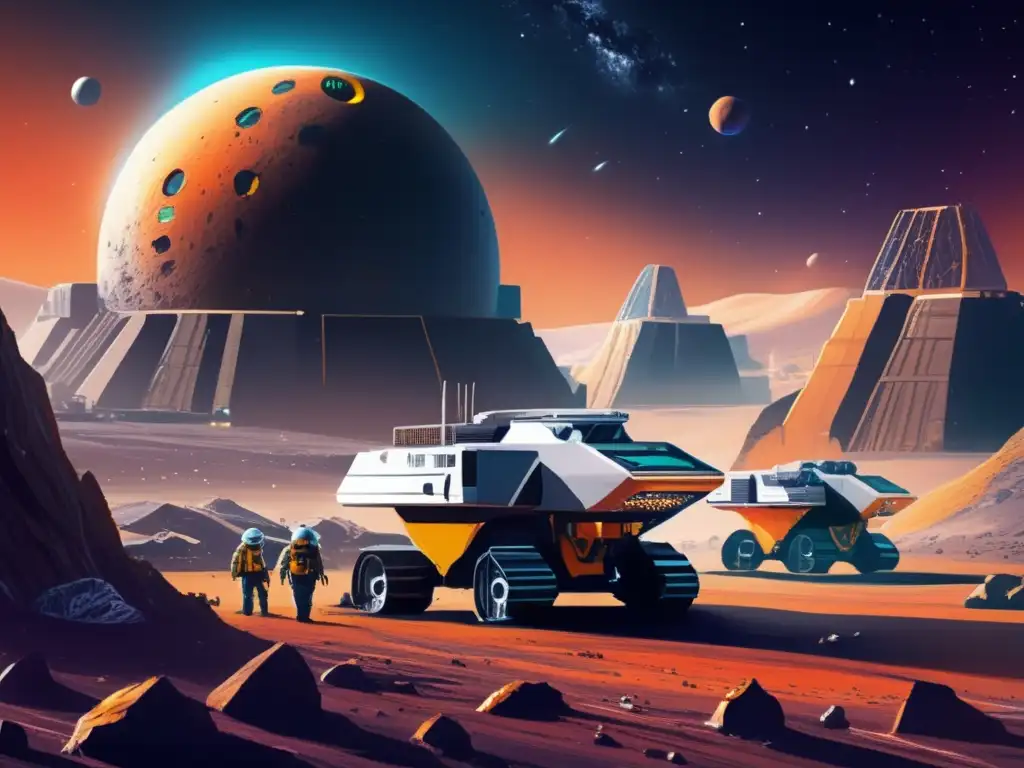
Introduction
Asteroid mining has long been a subject of fascination and speculation, but in recent years, it has transitioned from a dream to a potential reality. Advancements in technology and a growing interest in space exploration have reignited the discussion around accessing the vast resources that asteroids hold. In this article, we will explore the current state of asteroid mining and the path that has led us to this point.
The Promise of Asteroid Mining
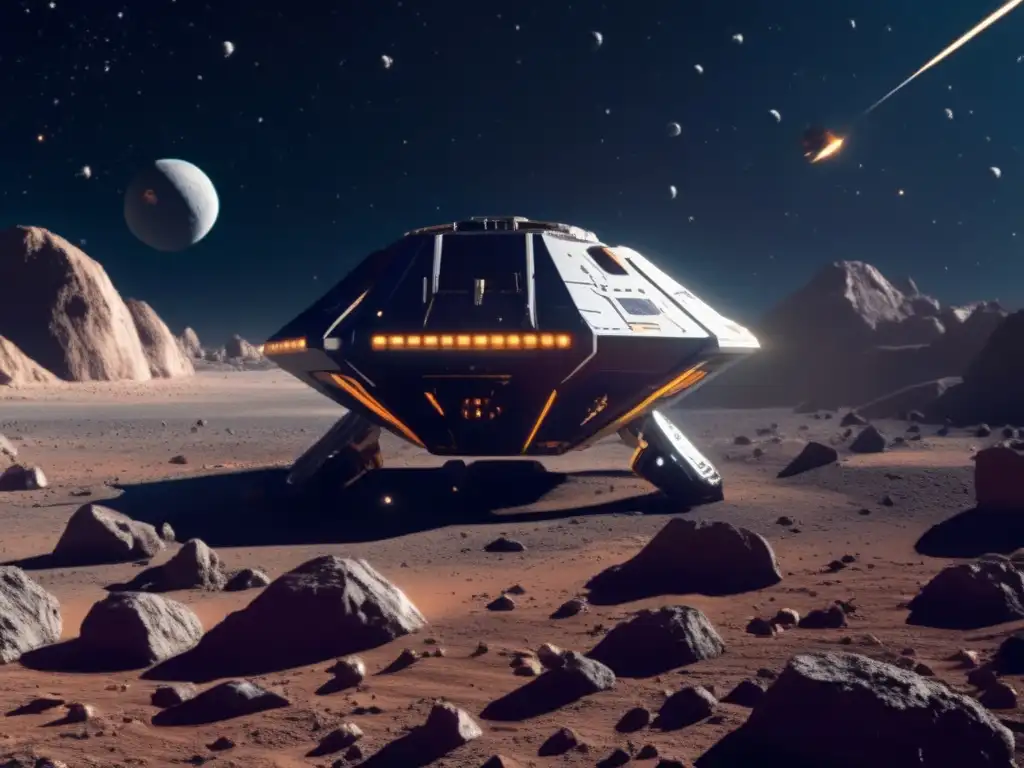
Unlocking Rare Resources
Asteroids are known to contain a wide range of valuable resources, including precious metals like platinum and gold, as well as rare earth elements crucial for modern technologies. By mining these celestial bodies, we could significantly reduce our dependence on Earth's limited resources, ensuring sustainability and economic growth.
Space Exploration and Colonization
Aside from their material value, asteroids also present strategic advantages for space exploration and colonization. Their low gravity and proximity to other celestial bodies make them ideal locations for refueling stations or even future outposts. By establishing a presence on these asteroids, we can pave the way for further space missions and expand our horizons beyond Earth.
Scientific Discoveries
Studying asteroids up close provides invaluable insights into the origin and evolution of our solar system. By analyzing their composition and structure, scientists can gain a deeper understanding of the processes that shaped our celestial neighborhood. These scientific discoveries can lead to breakthroughs in fields such as geology, cosmology, and astrobiology.
The Technological Advances
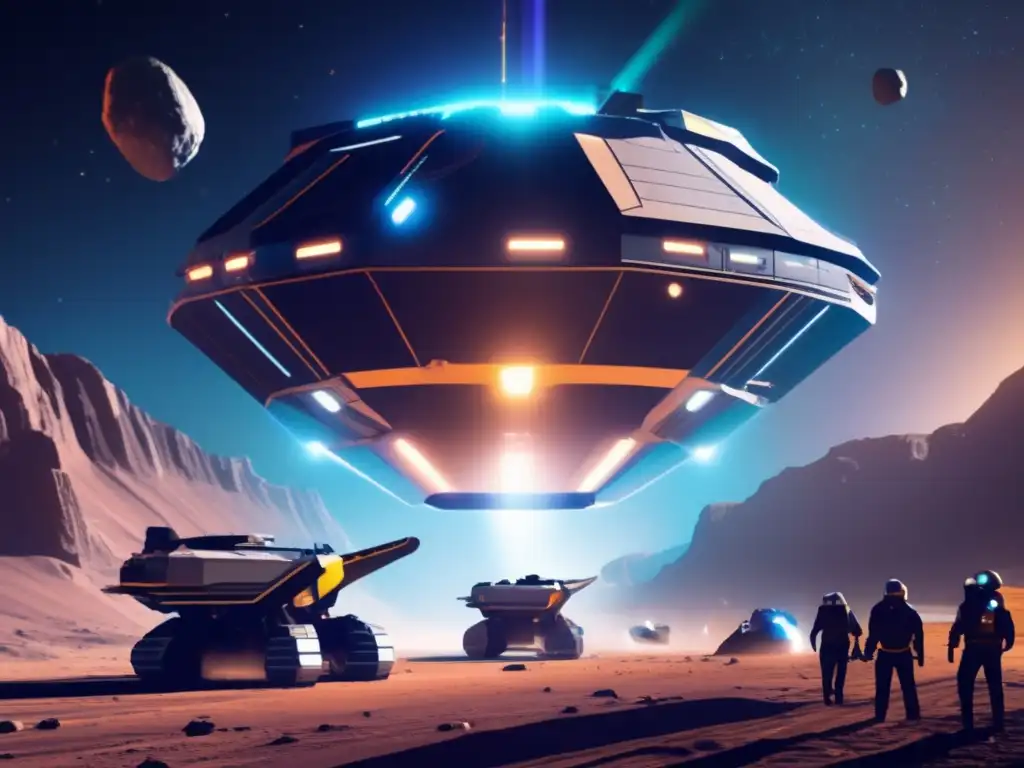
Remote Sensing and Prospecting
Before a successful asteroid mining operation can take place, extensive remote sensing and prospecting efforts are required. Satellites equipped with advanced sensors are used to gather data about the composition and size of potential asteroid targets. This information is crucial for selecting the most suitable candidates and optimizing mining strategies.
In-Situ Resource Utilization (ISRU)
The concept of In-Situ Resource Utilization (ISRU) lies at the heart of asteroid mining. It involves extracting and utilizing resources directly from their source rather than relying on Earth-based supplies. ISRU not only reduces the costs and risks associated with space travel but also forms the foundation for sustainable long-term missions and colonization endeavors.
Robotic Mining and Extraction Techniques
Mining asteroids is a highly complex task that requires precise robotic systems capable of navigating and manipulating in microgravity environments. Engineers are developing advanced mining and extraction techniques, including drilling, digging, and processing systems. These technologies must be capable of operating autonomously or under remote control to effectively collect and process asteroid resources.
The Legal and Ethical Landscape
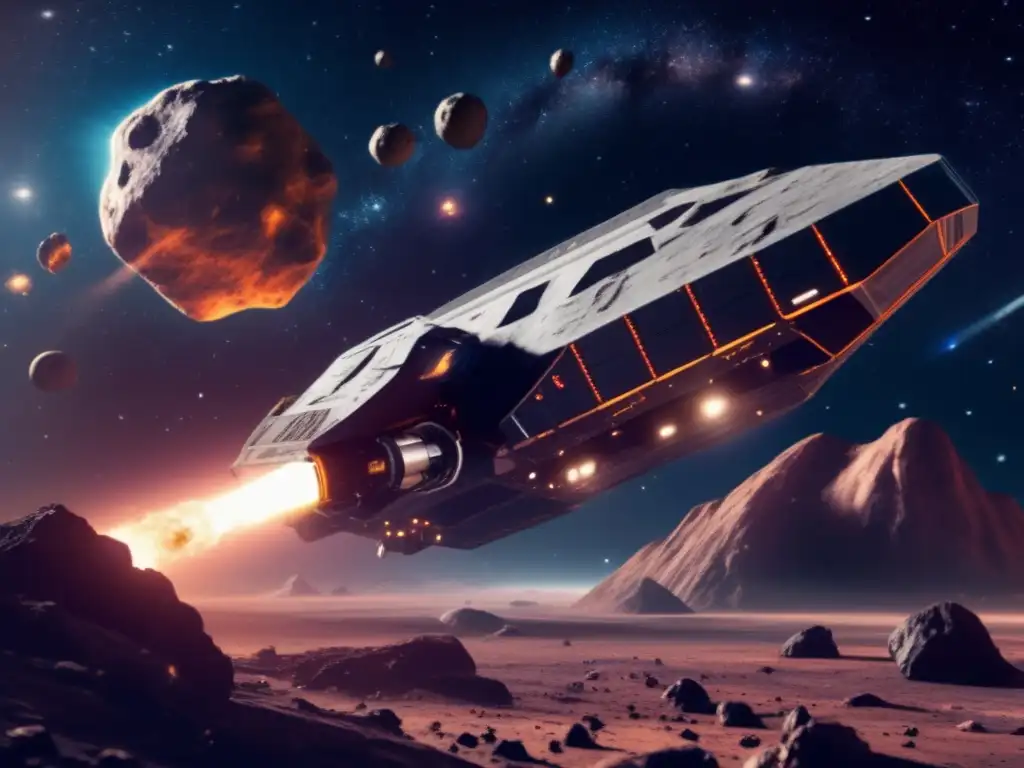
International Space Law
With the rise of asteroid mining, questions arise regarding legal frameworks and ownership rights. International space law, governed primarily by the United Nations Outer Space Treaty, plays a vital role in outlining the rules and regulations surrounding space activities. Debate continues over whether private companies can claim ownership of extracted asteroid resources.
Environmental Impact and Sustainability
As we venture into asteroid mining, it is crucial to consider the potential environmental impact and prioritize sustainable practices. Careful planning and implementation are necessary to minimize any adverse effects on the delicate balance of our solar system. Additionally, resource management and recycling initiatives must be developed to ensure responsible and efficient use of asteroid resources.
Asteroid mining has the potential to revolutionize various industries, create new job opportunities, and stimulate economic growth. However, it is essential to address the social and economic implications that come with this transformation. Ensuring fair distribution of benefits, fostering international cooperation, and balancing commercial interests with wider societal goals are critical considerations.
Frequently Asked Questions
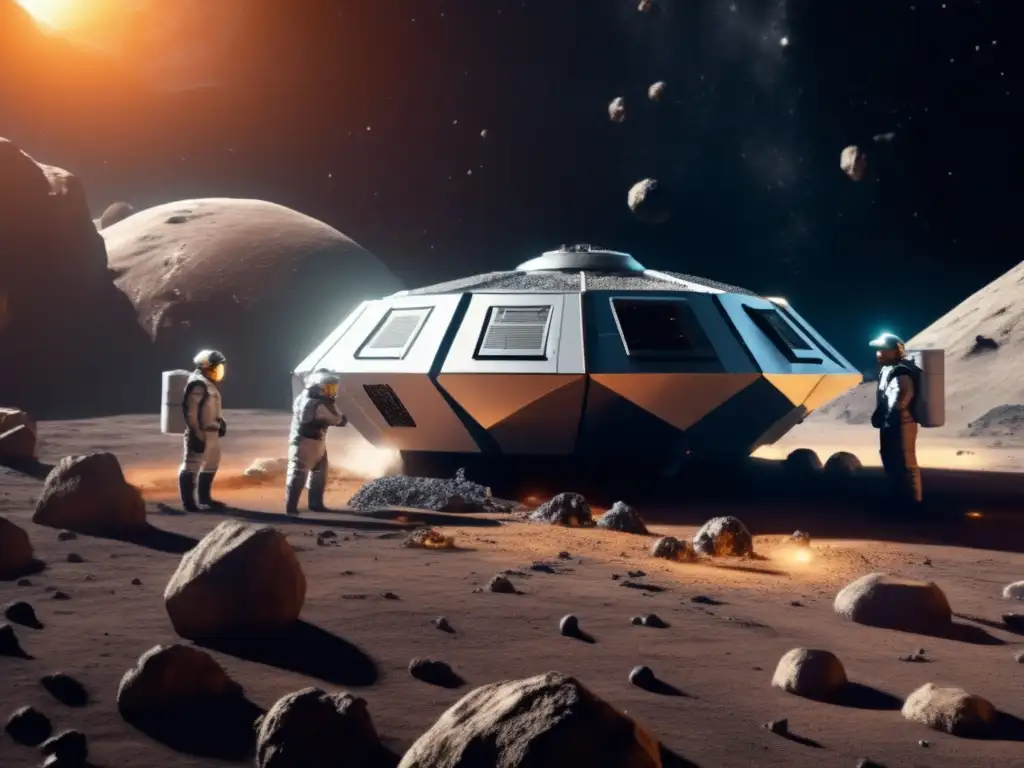
-
Can asteroids be mined for water?
Yes, asteroids are believed to contain significant amounts of water ice, which can be extracted and utilized for various purposes, such as drinking water, life support systems, and fuel production.
-
How do we identify suitable asteroids for mining?
Scientists use remote sensing techniques to analyze the composition and size of asteroids. Based on this data, they can determine which asteroids have the highest potential for mining operations.
-
What are the challenges of mining asteroids?
Mining asteroids presents several challenges, including the development of specialized mining technologies, navigating microgravity environments, and ensuring sustainable and ethical practices.
-
What are the potential risks of asteroid mining?
Potential risks include collisions with Earth during transportation, contamination of Earth's environment with asteroid materials, and the creation of space debris through mining activities.
-
When can we expect the first asteroid mining mission?
While there are ongoing efforts and plans for asteroid mining missions, it is difficult to determine an exact timeline. Several private companies are actively working towards this goal, but numerous technical and regulatory challenges must be overcome.
Conclusion
Asteroid mining represents a significant leap in space exploration and resource utilization. While many challenges lie ahead, the path to asteroid mining is being paved through technological advancements, legal frameworks, and ethical considerations. By unlocking the potential of these celestial bodies, we can secure a sustainable future for humanity and expand our understanding of the cosmos. Join us at www.asteroidrealm.com as we continue to explore the exciting frontier of asteroid mining.
Encourage the reader to share their thoughts in the comments section and to positively interact with www.asteroidrealm.com, whether by subscribing, sharing the article on social networks, or other forms of participation. Thank the reader for their time and attention.
Additional Resources

For more information on asteroid mining and related topics, check out the following resources:
- "Mining the Sky: Untold Riches From the Asteroids, Comets, and Planets" by John S. Lewis
- "Asteroid Mining 101" - NASA
- "Space Mining and its Regulation" - United Nations Office for Outer Space Affairs
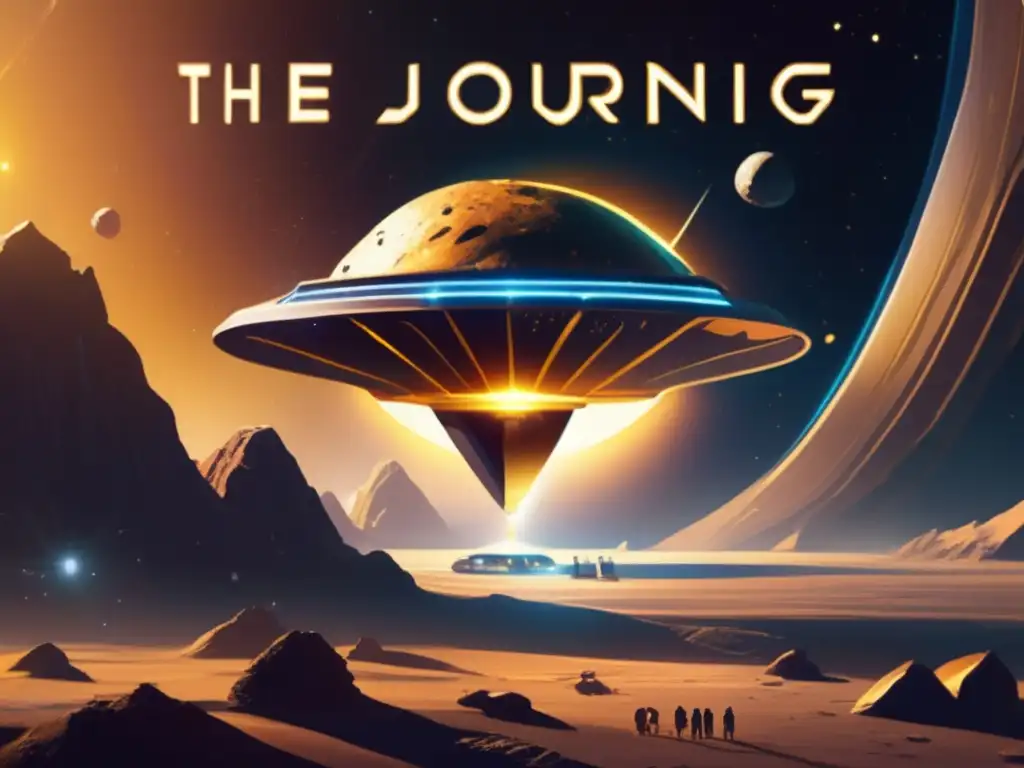 From Sci-Fi To Reality: The Journey Of Asteroid Mining
From Sci-Fi To Reality: The Journey Of Asteroid Mining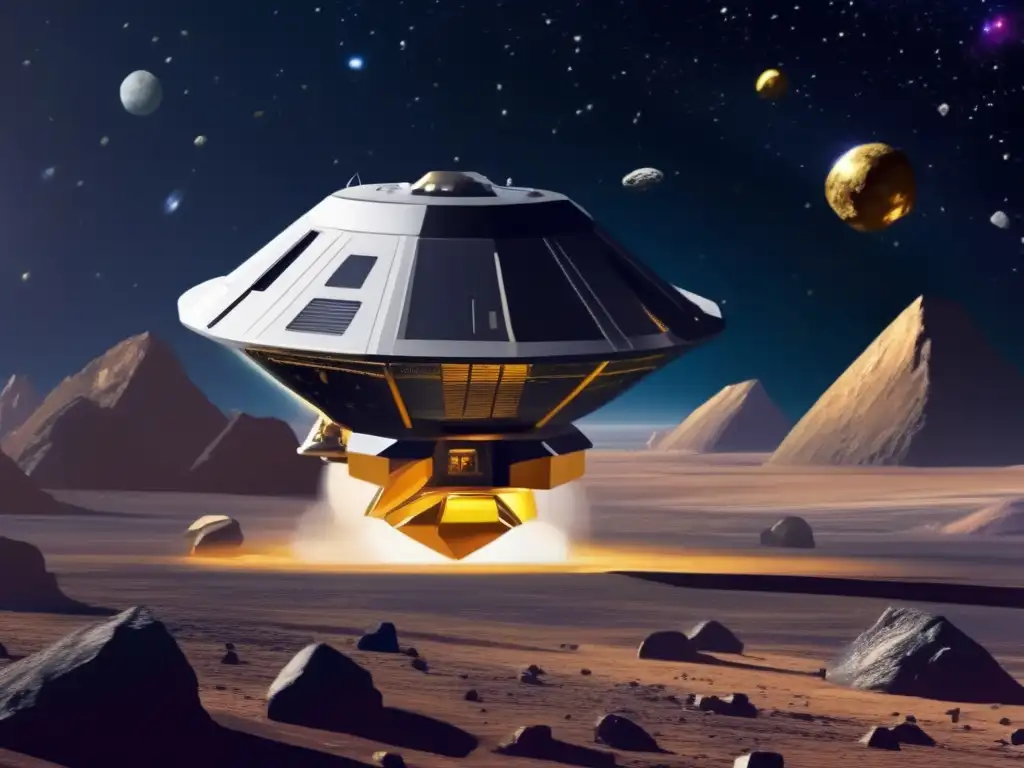 Fueling The Future: The Role Of Asteroid Mining In Space Travel
Fueling The Future: The Role Of Asteroid Mining In Space Travel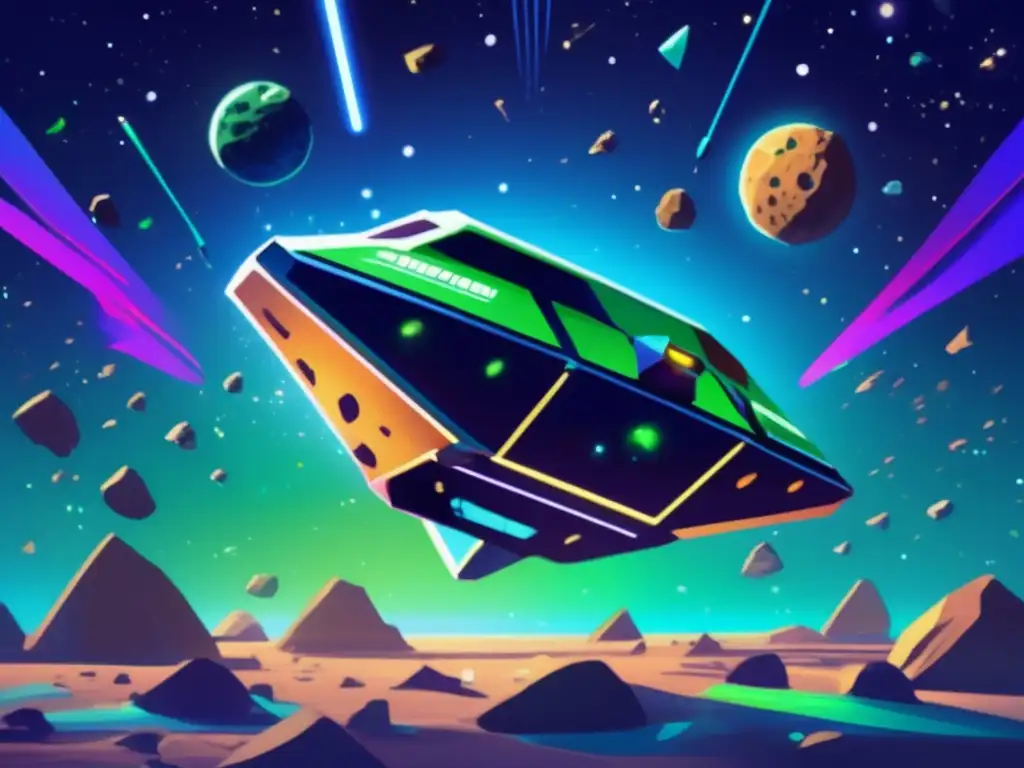 How Asteroid Mining Could Revolutionize Space Travel
How Asteroid Mining Could Revolutionize Space TravelIf you want to discover more articles similar to From Dream To Reality: The Path To Asteroid Mining, you can visit the Asteroid Mining and Resources category.
Leave a Reply

Articulos relacionados: